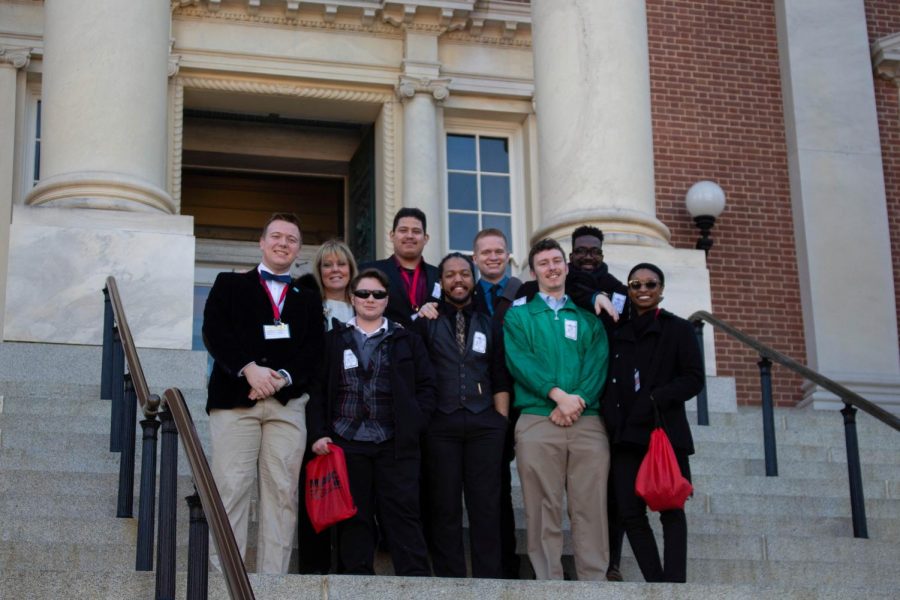Students voice issues to Maryland legislators
AACC President Dawn Lindsay poses with Director of Student Engagement Leon Thom-as and seven students at this year’s Student Advocacy Day. At the event, students spoke to Maryland legislators.
April 1, 2019
On a cold morning in March, seven AACC students joined 500 others from community colleges all over Maryland for a day of persuading state senators and delegates to vote for education-friendly legislation.
The 17th annual Student Advocacy Day gave AACC students, including Student Government Association President Jacob Smith and Board of Trustees member Caleb Schaeffer, a chance to talk with legislators about college funding and a bill to help disabled students.
Schaeffer, a full-time nursing student who works two jobs to put himself through school, advocated for the state to increase funding to community colleges through a 1996 formula designed to keep student tuition low.
Lawmakers designed the Cade Funding Formula to grow community college funding to 29 percent of the state’s higher education budget and to reach that goal by 2012. But legislators changed the goal seven times over the years, and have never reached it.
In 2018, 15 percent of the Maryland budget went to higher education. The latest change to the Cade Formula assigned the state a deadline of 2023 to reach 29 percent.
Schaeffer, who is a voting member of AACC’s Board of Trustees, told a legislative assistant to Del. Alice Cain he is thankful to the county “for supplying us extra funding for trying to keep … the tuition per credit low for students.” Cain represents Anne Arundel County.
He added: “But in order to keep this tuition low for the students we are going to need to have this support from the state as we move forward into the next year.”
Business administration student Tyler Hood also spoke to legislators in support of the Cade Formula.
“I feel like pulling more funding from the state to the schools and helping … the students that get access to those resources really alleviates a lot of that stress and a lot of the anxiety that I see students exhibit … day to day,” Hood said.
Matthew Barzal, a Spanish education and electrical engineering student, also showed support for the formula.
Barzal said he cannot afford to buy the musical instrument he learned to play in high school and wouldn’t have time to play it if he could because he works so many hours at his part-time job.
“When I talk to other friends I have seen around campus that I used to be great friends with in the band, I will say, ‘Hey do you guys still play?’” Barzal said. “A lot of times they will say, ‘No, the instrument I was playing was a school instrument, and now that I am here at community college, I can’t buy an instrument. All of my money is going straight to college.’”
Smith, a business administration and web design student, supported another cause.
He spoke in support of the Supplemental Services and Supports for Students with Disabilities Grant Program, a bill that would fund grants to community colleges to add services and accommodations for students with disabilities.
“The idea that people might have the money to go to college, but it doesn’t matter because their college doesn’t support their disability—it really kind of … makes you think,” Smith said. “I want everyone to have equal opportunity to go to college and have an education.”












